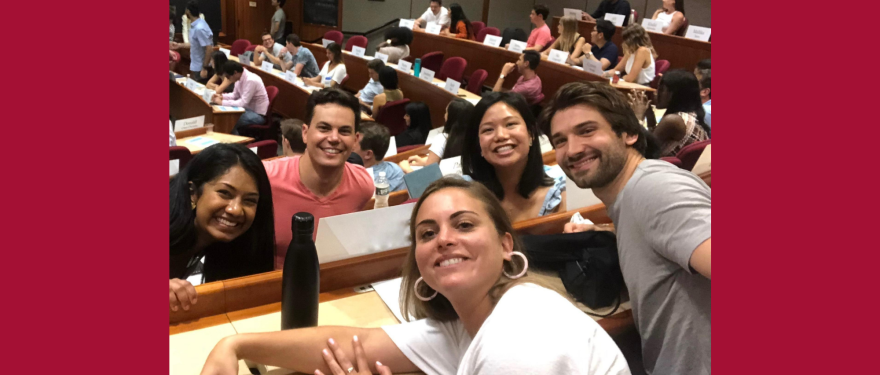A few months after graduating from HBS, I drove my Buick halfway across the country and moved to a state I’d never visited. When I arrived in Oklahoma, I became CEO of a union heating and air business. I soon discovered that HBS prepared me to lead a business I knew little about on day one.
At HBS You Learn Long-Term Leadership Strategy
I loved the HBS classroom experience, but I recall initially doubting the power of the case method style of learning. Surely you can just teach us accounting rules without debating! I was like Daniel LaRusso in the Karate Kid wondering how “wax on, wax off” had anything to do with becoming a karate champion. But I’ve noticed that alumni feel even more strongly about the value of the HBS education as they develop in their careers. I believe that is because HBS’s noted focus on leadership pays dividends as we grow from individual contributors into leaders over time.
Leading businesses has made me appreciate these lessons early: making decisions in ambiguous environments, considering the impact of your judgment on others, and listening to those in your organization to approximate the right answer. How does HBS teach us these lessons?
HBS Teaches You to Connect and Build Community
The composition of an HBS class exposes us to different viewpoints. HBS stands out because it pulls people from all over the world at a point in life when they have amassed different experiences but remain curious. Further, the case method forces you to wrestle with ambiguity and demands that you listen to other perspectives. Every class is taught Socratic-style. The cases offer no clear right answer, making you a more agile thinker, a more compassionate leader, and a humbler person.
Perhaps the most delightful surprise you discover at HBS is that people agree and disagree in unexpected ways. In my section, it was not uncommon to find an American from the Rust Belt and a Saudi student on one side of a debate, and students from Lebanon and San Francisco on the other side. By exposing you to such multi-dimensional diversity, you start to see how often you differ from those who seem most similar – and how much you share with those who couldn’t seem more different. There is something deeply humanizing about discovering this. You appreciate different community identities – but you also learn to see people as individuals in an age when we are encouraged to reduce individuals to group identity.
Because you’re in classes with the same people the entire first year, the HBS classroom creates a virtuous flywheel: the closer you and your classmates get, the braver you feel to speak up; and the more you all speak up, the closer you feel. This makes it easier to push the conversation when you know you’ll still break bread after the discussion despite sincerely-held differences.
Working alongside hardworking tradespeople in Oklahoma has been inspiring and edifying. I spend much of my time in different offices or out in the field with technicians. I learn from those closest to the action by listening to colleagues with different vantage points, creating meaningful relationships, and building consensus. These are the timeless skills that matter in leading any organization. They prepare you for changing economic conditions and technologies. Like Mr. Miyagi from Karate Kid, HBS has good reason to stick with its tried pedagogy. Lean into the experience inside and outside the classroom, and you’ll find that the two most enjoyable years of your life may also be the most useful.

